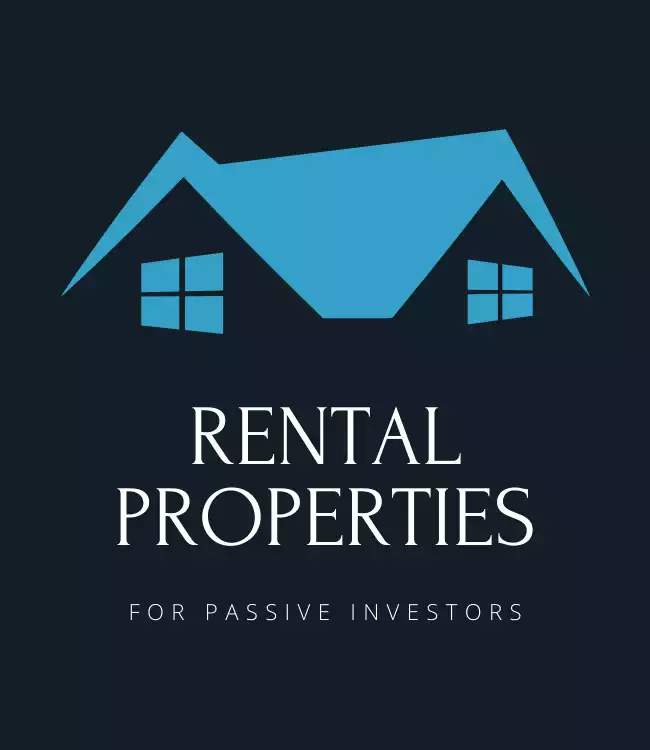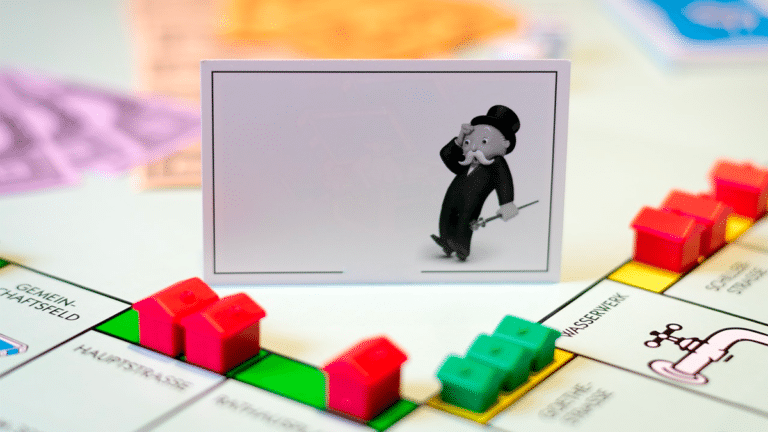Owning rental property is an excellent source of passive income. When done correctly, you can live off the cash flow provided by your renters. This post details how to manage your real estate investment with ease. Simply put, if you want to build wealth through real estate investing, this post shows you how.
Let’s get started.
Investing in the stock market isn’t the same as owning
Because rental income and stock market returns aren’t correlated. Real estate can also provide portfolio diversification.
However, it’s essential to understand the risks of the real estate market. Andrew started investing in rental properties several years ago. He’s written about his experiences here.
He gives a broad overview of why real estate can be a great investment and what he has learned from it.
We understand investing in real estate isn’t for everyone, but it is an excellent way to build wealth.
Are Rental Properties a Good Investment?
Accelerate Your Wealth Building
Your money is getting decent returns in the stock market, so why invest in the real estate market? It seems riskier and a metric ton of work, right?
Well, just like diversifying your investments in the stock market, it’s also important to have diversification in your portfolio as a whole.
Investing in the stock market is great over the long term for reaching future goals like retirement. It provides small gains over many years while serving as a hedge against inflation.
However, most of us will not get rich investing in the stock market alone. You can grow wealth over time but that takes a while. That’s where real estate investing comes in.
Owning real estate is like running a passive income business.
It provides a superior (and for the most part) reliable income stream. After putting in the initial work to find a profitable property, 90% of the labor needed to maintain the property can be outsourced.
You can choose to be as hands-off or as hands-on as you want throughout the entire process. There are property management companies that handle it all for you.

But, when you’re looking to buy your first property you should try to be more hands-on. Going through the whole process step by step will educate you on how it works.
Our proven, data-driven approach to building a portfolio of income-producing rental properties that perform in the long-term.
Depreciation
Before investing in his first property, Andrew read Tax-Free Wealth by Tom Wheelwright recommended by our guest Natali Morris. This opened his eyes to the abundant amount of tax benefits owning
Most people look at taxes as the government taking their hard-earned cash. However, Wheelwright says if you dig past the surface, the bulk of the tax code provides incentives for stimulating the economy.
97% of the tax code is dedicated to what you can deduct.
Tweet ThisOnly about 3% of the tax code is dedicated to how much you pay, but the other 97% is about how much you can deduct.
For example, let’s say you own a business and have a computer that you use for work. When you purchase that computer with your company money, you can deduct it as a business expense.
But, you can deduct more.
On average, a computer will need to be updated every three years so the tax code might say you can depreciate the computer every year. How do you do that?
You take the cost of your computer, divide it by three and deduct that amount from your taxes as a loss for three years. See the IRS website for the actual tax code.
It works the same for rental properties. You can depreciate an asset’s value over 27.5 years. You can deduct thousands from your tax bill just for owning a
Tax-Free Income
Let’s use a
That means you have invested $100,000 in the property. The return on investment (ROI), is 7% which yields you $7,000 per year in gains.
Let’s say you have invested $100,000 in the stock market. It also gives you a ROI of 7%. At the end of the year, you will have to pay capital gains tax on the $7,000 earned in the market to the tune of 15% – 20%.
Editor's Note
Tip: A 1031 exchange is a way to defer capital gains taxes by selling your
You still need to pay taxes on a real estate sale, it’s only a matter of when. A 1031 exchange lets you postpone the tax consequences much like a traditional IRA defers the taxes you pay until you withdraw that money in retirement.
The $7,000 you made from the
Using the property above as an example, you would be able to depreciate the full value of the $500,000 property, even though you only invested 20%.
You can also depreciate the cabinets, appliances, and deduct any improvements to the property and mortgage interest.
The government wants you to buy a new computer or property every odd year because it stimulates the economy. That’s why a significant percentage of the tax code is written to incentivize spending by offering tax deductions.
*The above examples give a broad overview of the tax treatment of real estate investing. It can get incredibly complex. Consult with your tax professional before getting started.
The Power of Leverage
Simply put, leverage is using someone else’s money to make you money. Unfortunately, the majority of people don’t use leverage. They trade their time for money, earning a linear income instead of passive income.
No matter how smart they are or how much they make a year at their 9-5 job, they still have a limited amount of time which limits their earning potential.
Leverage allows you to use the money of others to create a passive income.
A
Like in the example above, using $400,000 of someone else’s money earned $7,000 a year plus a boatload of tax deductions.
Here’s an example of two rental car companies’ business models to illustrate the financial power of leverage.
Car Rental Company #1 buys a Honda Civic for $18,640 cash. They rent the car at $12/hr for 40 hours per week earning them $480/week (or $24,960 a year).
Car Rental Company #2 uses leverage to get the car and lease the same Honda Civic for $125/month or $1,500/year. They also rent the vehicle at $12/hr for 40 hours per week earning $480/week or $24,960 a year as well.
Company #1 would see a 33% return on investment while Company #2 would see a 1,564% ROI.
What’s the difference? Both car rental companies are making the same amount of money. True, but because Car Company #2 only spent $1,500, they can buy more cars to earn even more money.
When it comes to real estate investing, the ability to leverage other people’s money will accelerate your financial goals. Maybe 20 years ago home appreciation was the new game when it came to real estate, but today it’s all about passive income.
What Are the Risks of Owning Rental Property ?
As glorious as real estate investing sounds, there are risks. First off, it’s an illiquid investment. It will likely take a few months to pull from the sale of the property.
You don’t want to put all your cash into this sort of investment.
There is also the danger of over-leveraging yourself. It’s easy to get hooked on buying real estate after you see the money coming in. We bought three properties in the last six months.
There is nothing wrong with that, but you need to do your math. And then do it again. You always want to be able to cover all costs; even when things might not be going well.
Knowing what risks come with owning a
For example, the roof can cave in, you may not be able to find a tenant, or may have to pay for an eviction. These things most likely won’t happen, but you never know.
If you calculate your risks, research your properties thoroughly, and plan for the worst-case scenario you can still be profitable.
Most importantly you need to protect yourself adequately. You don’t want to get stuck in an ugly lawsuit because someone fell off your uneven front step.
Our proven, data-driven approach to building a portfolio of income-producing rental properties that perform in the long-term.
Before Buying Your Rental Property
Visit a Potential Property by Both Day and Night, During the Week and On Weekends
Be mindful of a real estate agent who only shows you the property at a specific time of the day. For example, only making visits in the morning, because at night gangs emerge.
Walk around the neighborhood to see it all. You never know what is around the block until you check for yourself.
Get Landlord Insurance
We’ve heard all kinds of horror stories involving nasty tenants not paying rent. Do yourself a favor and get landlord insurance.
Guaranteed income provisions pay you while they chase your rent. Attempting to have your tenant removed could take longer than you anticipated.
The eviction process could take over a year. Imagine not seeing any rental income for that period.
Bottom Line
Owning
For first-time investors, the key to owning a successful real estate investment property is becoming educated about the real estate market.



